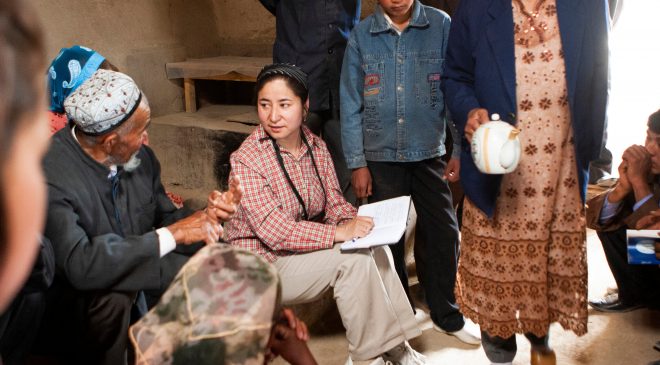
On Thursday, Chinese authorities have handed down a life sentence on the internationally renowned Uyghur ethnographer Rahile Dawut. This outrageous sentence follows Dawut’s six years of arbitrary detention, punctuated only by a secret trial in December 2018 in which the court found her guilty on baseless charges of “endangering state security.”
The news comes on the anniversary of another Uyghur scholar, the economist Ilham Tohti, being sentenced to life imprisonment in 2014. The Chinese leadership, including most recently President Xi Jinping, insist their policies across the Xinjiang region in northwest China have achieved “hard won social stability.” Just last week, Chinese diplomats in New York tried to undermine a public discussion of crimes against humanity targeting Uyghurs and other Turkic Muslims taking place on the margins of the United Nations General Assembly, claiming the region has been peaceful for several years. However, there is no real peace for those who remain arbitrarily detained, cut off from family, and endure relentless high-tech surveillance. The government says it’s now focused on “normalization” across the region, but its ongoing repressive practices indicate otherwise.
Professor Dawut’s sentence is not evidence of any wrongdoing on her part, but of Beijing’s unrelenting cultural persecution of Uyghurs, hostility to free expression, and disdain for fair trial rights all serious violations of international law. This development should catalyze renewed international calls for an independent investigation into crimes against humanity in Xinjiang and prompt the academic institutions with which Dawut has had ties, including Cambridge, Cornell, and Harvard Universities, to call for her immediate release.
The Chinese government could not make any clearer their chillingly methodical efforts to silence – for life – those Uyghur voices with different views, no matter how peacefully articulated those views are. The outstanding question is whether the rest of the world will let them get away with it.
